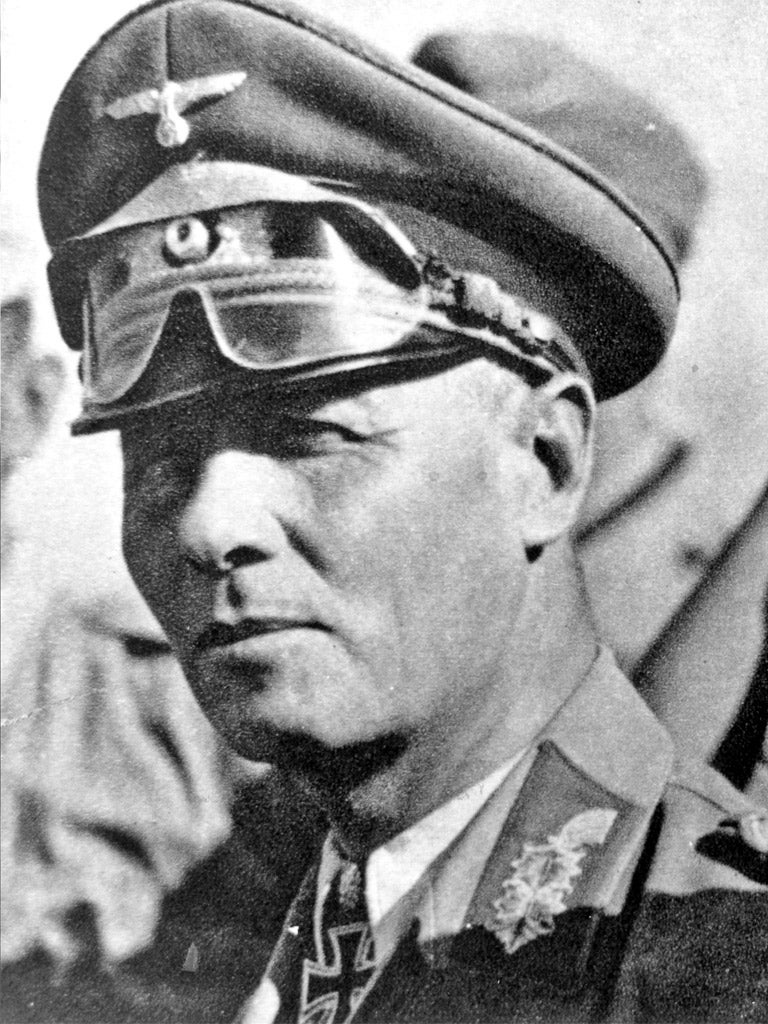Rommel plot revealed: Plan to assassinate the Desert Fox – and why MI6 abandoned it
MI6 officers also suggested the leader of the Vichy government, Pierre Laval, as a target

Your support helps us to tell the story
From reproductive rights to climate change to Big Tech, The Independent is on the ground when the story is developing. Whether it's investigating the financials of Elon Musk's pro-Trump PAC or producing our latest documentary, 'The A Word', which shines a light on the American women fighting for reproductive rights, we know how important it is to parse out the facts from the messaging.
At such a critical moment in US history, we need reporters on the ground. Your donation allows us to keep sending journalists to speak to both sides of the story.
The Independent is trusted by Americans across the entire political spectrum. And unlike many other quality news outlets, we choose not to lock Americans out of our reporting and analysis with paywalls. We believe quality journalism should be available to everyone, paid for by those who can afford it.
Your support makes all the difference.Britain flirted with the idea of launching a wave of assassinations of senior Nazis, from Field Marshal Rommel to railway chiefs, to coincide with the D-Day landings, according to newly released documents.
MI6 was asked to assess the plausibility of executing enemy figures crucial to the German response to an invasion of France, as well as to draw up a potential target list for British and French agents to “bump off”.
The highly sensitive plans were recorded by the Permanent Under-Secretary’s Department, the body responsible for liaising between the Foreign Office and MI6, whose files have been released by the National Archives.
The proposal to selectively eliminate key “personalities” in Nazi-controlled France originated from the Allied headquarters for D-Day in April 1944 in a memo entitled “Assassination Priorities for Overlord [the codename for the landings]”.
The document suggested that German generals, including Rommel, could be targeted and asked “C”, the head of MI6, Sir Stewart Menzies, whose identity was a closely guarded secret, to advise on the best way of carrying out any plan. Written by Charles Peake, the political officer at the headquarters, the memo added: “Unfortunately, compiling a list is one thing, and getting results quite another, but I suppose we must do our best.”
The scheme was initially given a cautious welcome by MI6 officers who also suggested a number of collaborators from the French Vichy government, including its leader, Pierre Laval, as targets, as long as any killings were carried out by Frenchmen.
But as the proposal reached the higher echelons of the espionage agency and the Government, the wisdom and practicality of organising a programme of high-profile killings less than two months before the invasion began came under severe scrutiny.
In a reply to planners on 11 May 1944, “C” said his service had drawn up a target list before adding: “We do not believe, however, that their removal will have much, or indeed any effect on the efficient functioning of so widespread and highly organised [a] machine as that in which they are prominent officials.”
D-Day organisers modified their scheme to target lower but vital functionaries such as the heads of the German intelligence service, the Abwehr, and “important political figures, transport chiefs, heads of supply and other economic organisations”. But the project was eventually quietly abandoned.
However, documents show Britain was not above all assassination attempts. After “quite fantastic” – and wrong – intelligence was received in June 1944 that Hitler was living in disguise in a house in Perpignan, a scheme was approved to bomb the target.
A memo to Winston Churchill from his senior military adviser, General Hastings Ismay, said: “The Chiefs of Staff were unanimous that, from the strictly military point of view, it was almost an advantage that Hitler should remain in control of German strategy, having regard to the blunders that he has made, but that on the wider point of view, the sooner he was got out of the way the better.” Whether the mission went ahead was not recorded.
Join our commenting forum
Join thought-provoking conversations, follow other Independent readers and see their replies
Comments